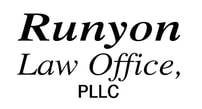A Modest Proposal
The problem with this plan can be that age alone doesn’t guaranty smooth sailing for anyone. For example, what if you’ve settled on a final payout at 30, but by then a divorce or a lawsuit or bankruptcy has made it treacherous for your offspring to receive - and retain - even a morsel of the egg? Yet the trust says 30, so the estranged spouse or the plaintiff or the bankruptcy creditors want their shares. Or what if 30 just turns out to be way too early - or unnecessarily late - for your folks, no matter how you assessed the situation way back when they were 10 and 12?
Let's also say you want the trust to provide for the children's or grandchildren's tuition somewhere really expensive - that doesn't narrow it down much these days - but you don't want the trust assets to count against them in the financial aid decisions. Or perhaps one of those youngsters ends up spending every nickel he touches on harmful substances or needs disability benefits at some point - and you don't want a trust share to finance their problems or disqualify them from help they may be able to qualify for otherwise.
How about one more scenario: maybe one of the kids or grandkids doesn't really need as much as another, because his spouse has a lucrative career or inherited a lot herself - or maybe needs more, because she's committed to a wonderful non-profit that does important work but can't pay a living wage.
So, what kind of magic tweak might actually deal with nearly all these concerns? Well, suppose you substituted the word "may" for "shall" in the trust provision about distributions, and suppose you took out all the ages for mandatory equal distributions and left it totally up to a trusted person - you know, a trustee - to decide when and for what purposes distributions could be made once you're gone. Then, instead of inserting any specifics into the trust agreement itself - specifics that might have to be disclosed to someone snooping into a beneficiary's right to a quantifiable share of the assets - suppose you left some informal guidelines for the trustee about how and under what circumstances the trust funds might be used. And because those guidelines weren't included in the official document and weren't legally enforceable anyhow, they wouldn't have to be disclosed to anyone. No one's share would really be a share at all, so no third parties could get their claws into anything definite or put a meaningful value on it.
Needless to say, this approach isn't for everyone. Some people don't want others - even trusted others - making all those fundamental decisions. Some people don't even have others they trust that much. And some people just figure that their kids need to leave the nest and fend for themselves at some point - say, at 30 - no matter what happens next. So it's just a modest proposal for your consideration.
